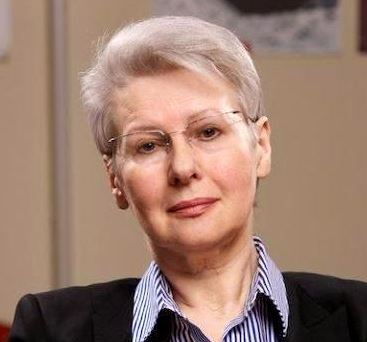Russia truly is “a unique civilization,” one that like ancient Sparta is based on militarism and expansionism now as in the past, Liliya Shevtsova says. Even when there is peace, the country is engaged in “preparation for a new war;” and the efforts of some of its people to break out of this “cycle of militarism” after 1991 have been blocked by Putin.
But the Kremlin leader faces a problem as it begins this “new cycle of militarization,” she continues. “Russia cannot militarize in the old way. It doesn’t have the resources, and the budget is limited,” and very few Russians either in the elites or the population are prepared to pay the price.
Therefore, the Russian analyst continues, “we have landed in a very complicated situation when on the one hand the country has not escaped from militarism but on the other the country already cannot carry out a constant struggle with the entire world. It has turned out that the Kremlin is capable only of fake militarism and an imitation of war.”
“This is the war Russia is carrying out in Ukraine,” Shevtsova says; and she suggests it will continue for some time because Moscow has decided that it can portray its “fake war” in Ukraine as standing for a struggle against the entire world and by so doing win the support of the Russian people.
To date, that calculation appears to have worked, but it is increasingly evident that it won’t forever. The elites have their money in the West and vacation there, and thus “we have a completely new situation in which the Russian class turns out to be a Western class.” And the population’s declaration of support for Putin is a danger signal.
Russians know that they live badly, but they support Putin because they are afraid that any change might be worse and that at present they do not see an alternative to his rule, Shevtsova says. This is an indication of “the illness of society and the lack of prospects” for it and its members.
Unfortunately, she continues, “Russia in many respects differs from today’s Ukraine.” Ukraine has pluralism; Russia does not. Ukraine has changed leaders by relatively peaceful and open processes; Russia has not. Ukraine has a civil society that is based on strong horizontal ties; Russia doesn’t because it doesn’t have those. And Ukraine has elites that can work with each other on a compromise basis; again, Russia does not.
Consequently, while a Maidan might be possible in Russia, it could turn out to be “destructive,” as even the opponents of the Putin regime fear.
On the more general question of Russia’s place between Europe and Asia, Shevtsova argues that “Russia as a civilization does not belong to either Asia or Europe.” It has some European-thinking people, but in contrast to Ukraine, Russians are not prepared to struggle for it, although they would accept it if offered by the elites.
At the same time, she suggests, “the Russian Federation will never be a real Asia. We don’t have the Asian qualities with the exception of the means of rule which we took from the history of the Golden Horde. Therefore, in the immediate future, we will not leave this interregnum, this historical pause.” Indeed, Russia may remain trapped between the two.
“It is possible,” Shevtsova says, “that the path of Russia will lead to its splitting up into small pieces. Perhaps one of these pieces will survive as a European state. As a whole, the Russian Federation which consists of incompatible parts possibly really will undergo a transformation.”
But one thing is clear: “It is impossible to build a contemporary state including within it the European part of Russia and let us say Chechnya’s Kadyrov regime. The number of people calling for a transition to a legal state gives hope; the only problem is what price we will pay for this.”





